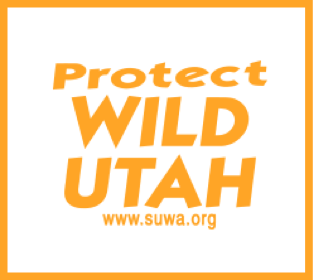|
For Immediate Release Contact: Southern Utah Wilderness Alliance Applauds Congressional Efforts to Call Oil/Gas Industry's Bluff SALT LAKE CITY, UTAH (June 20, 2008): Two bills recently introduced in Congress take a well deserved hard look at oil and gas industry claims that a lack of access to federal public lands is responsible for the current high price of gasoline. Both H.R. 6251 introduced by House Natural Resources Committee Chairman Nick Rahall (D-WV) and H.R. 6256 introduced by Energy Independence & Global Warming Select Committee Chairman Ed Markey (D-MA), joined by Public Lands Subcommittee Chairman Raul Grijalva (D-AZ), Rep. Maurice Hinchey (D-NY), and several others seek to dispel the myth that a lack of access to public lands in the western United States, Alaska and the Outer Continental Shelf is a contributor to the current spike in gasoline prices. A similar bill has been proposed in the Senate (S. 3133) by Sens. Dick Durbin (D-IL), Christopher Dodd (D-CT), and Robert Menendez (D-NJ). “In Utah alone, the oil and gas industry has over 4.6 million acres of public lands under leases yet just over 1 million acres of those lands are in production,” said Stephen Bloch, staff attorney for the Southern Utah Wilderness Alliance. “Industry claims that more public lands in Utah and across the west need to be opened for leasing and development have no basis in reality.” In addition, between January 1, 2001 and December, 31 2007, the Utah Division of Oil, Gas and Mining approved 8,691 permits to drill new oil and gas wells in Utah. As of December 31, 2007 there were 3,453 approved drill permits from that seven-year period that had not yet been drilled. According to Bloch, the Southern Utah Wilderness Alliance and other conservation groups have litigated only a handful of drilling projects fewer than three percent during this period. “We commend Congress for taking a hard look at whether certain companies are inappropriately stockpiling leases in the dying days of the Bush administration that they do not intend on using, all the while complaining that more access is needed to spur development,” Bloch added. While the oil and gas industry stockpiles surplus leases and permits, it continues to ask for unfettered access to public land and for permission to develop controversial sources of energy. “We encourage Congress to resist efforts by industry to relax current site-specific environmental safeguards and to refrain from promoting unconventional and unproven fuel sources, such as oil-shale and tar sands, which have the potential to significantly alter the wild landscapes of Utah’s public lands,” cautioned Richard Peterson-Cremer, legislative assistant for the Southern Utah Wilderness Alliance. “We strongly support suggestions by Utah Governor Huntsman for how citizens can take immediate steps to lessen the impact of gasoline prices, including keeping tires properly inflated, keeping your car maintained, reducing engine idle time, and driving at lower speeds,” said Bloch. http://www.utah.gov/governor/priorities/energy_security.html and http://geology.utah.gov/sep/energy_efficiency/gasoline/mileage_tips.htm. SUWA also applauds the state’s efforts to promote energy efficiency, conservation, and alternative energy sources. http://geology.utah.gov/sep/
>>For more information, read SUWA's Oil and Gas Fact Sheet
|
|
|

 Southern Utah Wilderness Alliance
Southern Utah Wilderness Alliance
Protecting Utah's Redrock Country
